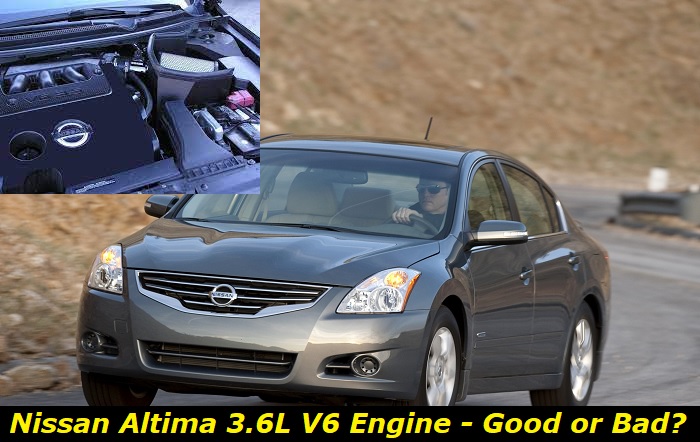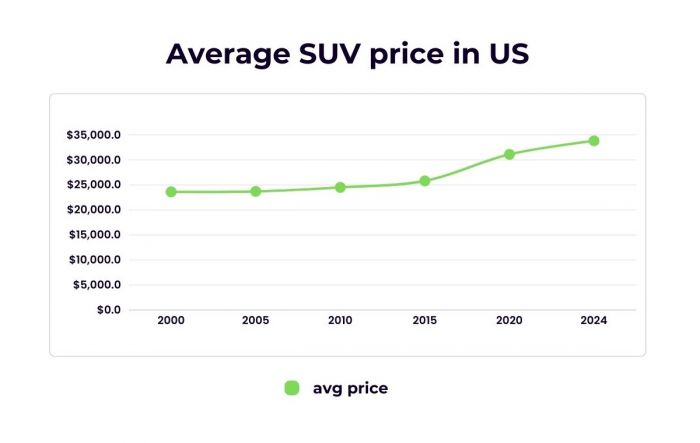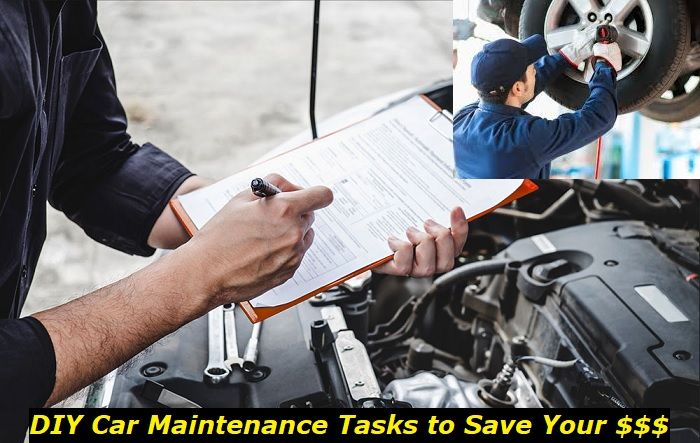The Altima is one of the best-selling cars in Nissan's lineup. Unfortunately, over the years, the model has gained a reputation for having several mechanical issues. Previous owners of the Nissan Altima have reported spending more time than one should at the auto repair shop. If you are in the market for a 2007-2012 Nissan Altima with a 3.5L V6 VQ35DE engine, it is best to do your research before making an irreversible choice.
Despite all the complaints, people keep buying the Nissan Altima because it is a reliable car with excellent fuel economy. This article will supply all the information you need about the 3.5L V6 engine found in the 2007 - 2012 Nissan Altima. Scroll on to learn more about the specs, longevity, and common problems associated with this engine.

Key features and my opinion about the engine
- Production years:2000-2024
- Average lifespan of VQ35DE:240,000-270,000 miles
- Fuel supply type:port injection
- Power range:215-395 hp
- Fuel efficiency:average
- Engine block material:aluminum
- Engine reliability score:high
- The most common problems:carbon buildup on intake valves, oil consumption, bad oil leaks, 5th and 6th cylinders overheating, no lifters.
Specs and Longevity of the 2007-2012 Nissan Altima 3.5L V6 Engine
Even people who know nothing about cars know enough to be impressed by a 3.5L V6 on a car that is not unnecessarily bulky because the resulting power and handling are spectacular. The Nissan Altima is much more powerful than its deceptively sleek appearance implies and has a longevity of 240,000 to 270,000 miles. It measures up evenly against similar models by their sworn competitors, Honda and Toyota.
Even on the second-hand market, Nissan Altimas are snapped up surprisingly fast. Many second-hand car buyers keep an eye out for any Nissan Altimas that may have logged less than 150,000 miles. Most of them know that the car is quite durable, and any issues that crop up are likely simple and affordable to repair.
Most Common Problems in the 2007-2012 Nissan Altima 3.5L V6 Engine
Owners and drivers of the Nissan Altima have filed numerous complaints and lawsuits against the company for various manufacturing defects, most famously, the CVT malfunctions. Consumers have highlighted engine problems, including fuel pump failure, intake gasket, camshaft position sensor, crankshaft position sensor, catalytic converter, and engine seal.
1. The Crankshaft or Camshaft Position Sensor is Defective
Several Nissan Altima drivers noticed rough riding immediately after starting their engine. This symptom is attributed to a failing crankshaft or camshaft sensor, a considerable safety, and performance issue.
This problem was so widespread that Nissan had no choice but to issue a VIN-specific recall for particular 3.5L V6 and 2.5L 4-cylinder engines that had been affected by this problem. It involved 24 models spanning from 1993 to 2017, which includes the model we are currently discussing.
It is advisable to have defective position sensors inspected by a qualified professional immediately. Ignoring faulty sensors will place you at inherent risk by causing your vehicle to stall without warning. Failure to repair defective sensors could also cause your car to fail to start and ruin your fuel economy.
Replacing the two sensors typically costs between $180 and $220. Wise buyers would have these sensors inspected before purchase to ensure they do not incur avoidable repair costs.
2. The Intake Gasket Has a Leak that Affects the Air Flow Sensor
Nissan Altima's are also reported to suffer leakage of the intake gasket, which in turn affects the airflow sensor. If your Nissan Altima has a larger-than-normal appetite for gas, chances are high that a leaky intake gasket is to blame.
Your intake gasket serves the crucial role of ensuring your engine then gets the oxygen necessary to generate a spark in the cylinders so your engine can roar to life. Located between the air intake and the engine, a leakage in your Nissan Altima's intake gasket means unmetered air will get into your engine.
The unmetered air causes your mass air flow sensor (which feeds your car's electronic control unit data that helps it determine the amount of fuel to pull into the engine) to have inaccurate readings. The unmetered air caused by the leaky gasket throws off your car's computerized system. It also contaminates your engine because it does not flow past the air filter. Fixing a leaky intake gasket on your Nissan Altima 3.5L V6 engine (VQ35DE) will cost about $400.
3. The Engine Seal is Failing
Some Nissan Altima drivers - particularly those behind a 3.5L V6 engine are plagued by a low oil problem that never seems to go away. Perhaps your engine needs a top-up even more often? Though most people rushed to blame the oil cooler, troubleshooting eventually revealed that the challenge lay in the O-rings that seal the 3.5L V6 engine.
Drivers who do not detect the leak immediately will likely hear noise from their engine. If the noise does not alert you, your dashboard will likely illuminate a check engine light or an error code indicating low engine oil levels. Replacing O-rings is quite affordable; the bill racks up when you need a new oil cooler. This is not a cheap problem to fix. Usually, the repair calls for intensive skilled labor and expensive parts. Usually, replacing both components will cost you no less than $700.
4. The Malfunctioning Fuel Pump Causes Fuel Starvation
Is your Nissan Altima acting reluctant whenever you try to start it up? It is likely to feel like a hesitant stutter that may give way to a sudden lunge. Your car could also fail to start despite repeated cranking. Stalling is not a new complaint for the Nissan Altima.
The most common cause of stalling in your Nissan Altima 3.5L V6 VQ35DE engine is premature fuel pump failure. Your Nissan Altima gets starved for gas when the fuel pump fails to operate as expected. Without gas, your car will fail to start or lose power unexpectedly.
The prematurely failing fuel pump affected multiple Nissan Altima models between 2001 and 2015. It is quite frustrating when your car lacks sufficient fuel pressure to do its job. In 2019 Nissan recalled multiple Nissan Altimas to replace their malfunctioning oil pumps.
The 2007 - 2012 Nissan Altima owners with 3.5L V6 engines were not so lucky. They either had to face the steep cost of fixing the defective pumps or pass the cost on to some unwary buyer. While the fuel pump is affordable to replace, a serious degree of skilled labor goes into the task. The average cost of replacing a fuel pump on a Nissan Altima is $1200.
5. The Catalytic Converter is Failing
When your Nissan Altima has a failing catalytic converter, you may notice it immediately or over time. The largest indicator is poor fuel economy or sporadic loss of power. If the problem is severe, your check engine light will likely illuminate and display a PO420 error code that usually indicates a failing catalytic converter.
A bad catalytic converter is unlikely to cause your car to change from running smoothly one minute so losing power and consuming gallons the next. It would be best if you kept your eye out for a gradual change in trends because the issue may take longer than a year to come to a head. Diligent drivers will likely catch the issue before it causes significant damage or inconvenience.
A faulty catalytic converter is a safety threat and must be fixed as soon as it is detected. When your catalytic converter breaks up or gets clogged, tiny pieces of debris will block the exit and prevent the release of exhaust gases. The accumulation of exhaust gases causes power loss by suffocating your engine. Any time your check engine light illuminates alongside a PO420 code, schedule a visit with a certified mechanic to get your catalytic converter accurately diagnosed and efficiently repaired.
Replacing a catalytic converter will mean digging deeper in your pocket than you'd probably like. Unfortunately, it cannot be avoided or put off. Delaying the repair will inevitably cost you more should the catalyst converter material be sucked into the engine. The material will contaminate your engine components and demand costly repair. A stitch in time saves nine. Take a deep breath and set aside at least $1200 to replace your ailing converter.
So, Is It Worth Buying?
Don't let all the complaints scare you off; the 2007 - 2012 Nissan Altima is still a great choice. An even better one for an informed buyer with an eye out for all these common problems. When buying a used car with mixed reviews, like the Nissan Altima, do not hesitate to spend a few extra dollars for a pre-purchase inspection to put your mind at ease.
No machine is perfect and invulnerable to failure now and then. The horrible reviews are likely left by drivers who failed to invest in the maintenance of their new Nissan Altimas or second-hand buyers who got a lemon from the used car lot.
After purchase, immediately fix any issues that pop up; this is the best way to keep repair costs and mechanical challenges low. Wherever possible, ensure your car is fitted with OEM parts or compatible and high-quality after-market alternatives.
About the authors
The CarAraC research team is composed of seasoned auto mechanics and automotive industry professionals, including individuals with advanced degrees and certifications in their field. Our team members boast prestigious credentials, reflecting their extensive knowledge and skills. These qualifications include: IMI: Institute of the Motor Industry, ASE-Certified Master Automobile Technicians; Coventry University, Graduate of MA in Automotive Journalism; Politecnico di Torino, Italy, MS Automotive Engineering; Ss. Cyril and Methodius University in Skopje, Mechanical University in Skopje; TOC Automotive College; DHA Suffa University, Department of Mechanical Engineering






Add comment